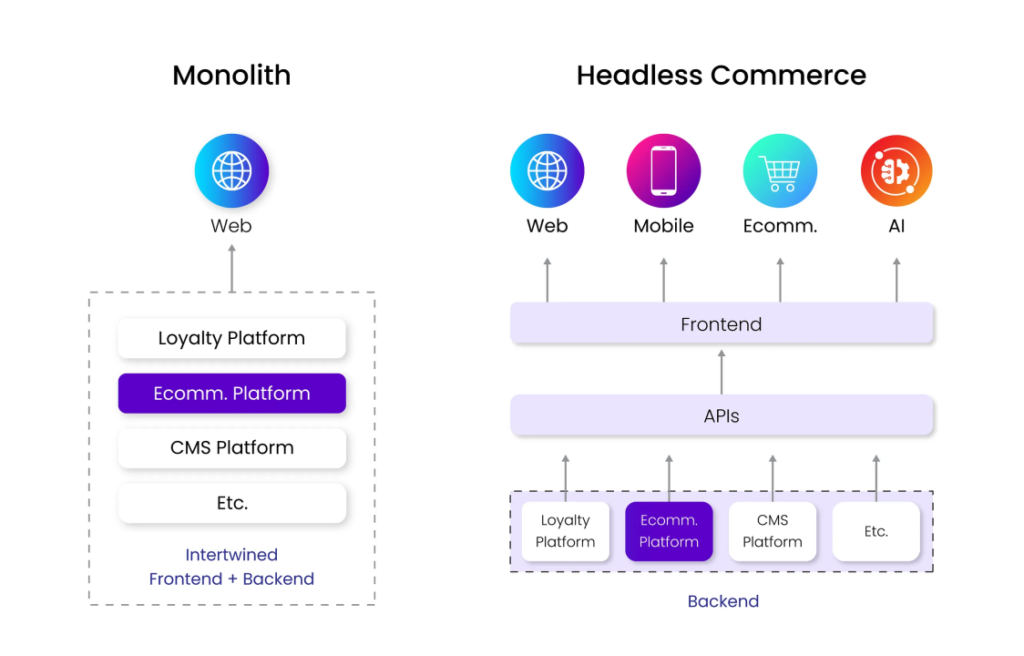When it comes to creating a website for your business, choosing between a website builder and a website developer is a crucial decision that directly impacts your online presence and success. While website builders offer a DIY platform for building websites without coding knowledge, they may lack the customization and functionality required for complex projects. On the other hand, website developers bring expertise in crafting tailored solutions but require a higher investment.
In our comprehensive blog, we explore the comparative analysis of website builders and website developers, including their pros and cons, core differences, and key factors to consider. By the end, you’ll gain insights to make an informed decision for your website development project.
When establishing your online presence, one of the initial decisions you’ll confront is whether to utilize a website builder or engage a developer. Both avenues demand time, financial investment, and effort, making it imperative for businesses to choose wisely. Let’s delve into these approaches individually.
Website Builder: The DIY Convenience
Website builders, often likened to Legos in the website realm, have surged in popularity owing to their user-friendly nature and affordability. They furnish pre-designed templates, drag-and-drop functionality, and intuitive interfaces, enabling users to construct websites sans any coding expertise.
Examples of Website Builders:
Wix: Recognized for its simplicity and vast array of design templates, Wix caters well to beginners seeking an all-encompassing solution.
Drupal: A widely-used open-source content management system (CMS) and website builder, Drupal is esteemed for its adaptability, scalability, and rich feature set.
Joomla: Another open-source CMS and website builder, Joomla boasts a user-friendly interface, customizable templates, and a plethora of extensions for crafting websites, blogs, forums, and eCommerce platforms.
Weebly: Noted for its drag-and-drop interface and seamless integration with various online tools, Weebly is renowned for its user-friendly design.
WordPress: Offering a website builder platform based on the WordPress CMS, WordPress furnishes customizable themes, plugins, and options suitable for both novices and advanced users.
Magento: Tailored specifically for eCommerce ventures, Magento presents features encompassing product management, inventory tracking, payment processing, customer relations, and marketing.
Ideal for:
The Website Builder approach is particularly suited for small businesses and startups, which typically prioritize:
Pros and Cons of Website Builder:
Here are some key advantages and considerations associated with using a website builder:
| Pros of Website Builder | Cons of Website Builder |
|---|---|
| Ease of Use: Intuitive, drag-and-drop interfaces make it easy to create and customize websites without coding knowledge. | Limited Customization: Design flexibility and functionality may be restricted compared to custom-built websites. |
| Affordability: Subscription-based pricing models with affordable plans make website builders accessible to businesses with limited budgets. | Template-based Design: Websites may lack uniqueness as they are often based on pre-designed templates used by multiple users. |
| Quick Setup: Pre-designed templates and built-in features enable rapid website development, reducing time-to-market. | Scalability Challenges: Businesses may outgrow the capabilities of website builders as they expand, necessitating a switch to a more scalable solution. |
| No Technical Expertise Required: Users with little to no technical background can create professional-looking websites without hiring developers. | Dependence on Provider: Users rely on the website builder provider for updates, support, and platform changes, limiting control over the website. |
Crafting Tailored Solutions with Website Developers
Website developers are the architects of the web, offering a tailored and customized approach to building your website. With their expertise, they create unique and interactive designs from scratch, implementing custom functionalities to cater to your specific business needs and vision.
Types of Website Developers:
Specializes in building the user interface (UI) and user experience (UX) of a website, focusing on how the site looks and interacts with users.
Responsible for developing the server-side logic that powers a website’s functionality, managing databases, and ensuring smooth performance.
Possesses expertise in both front-end and back-end development, capable of handling all aspects of website development from design to implementation.
Specializes in building online stores and eCommerce platforms, integrating features for selling products or services, managing inventory, and processing payments.
Focuses on creating visual elements, aesthetics, and usability of websites through graphic design, enhancing the overall look and feel of the site for optimal user experience
Ideal for:
| Pros of Website Developer | Cons of Website Developer |
|---|---|
| Unique Customization: Website developers offer customized solutions tailored to your business needs, ensuring a unique online presence. | Higher Cost: Working with a website developer can be more expensive compared to using website builders, especially for complex projects. |
| Scalability: Developers can create scalable websites that grow with your business, accommodating increased traffic and functionality. | Longer Development Time: Custom-built websites may take longer to develop compared to using pre-designed templates with website builders. |
| Performance and Security: Website developers prioritize performance optimization and robust security measures to ensure fast-loading and secure websites. | Technical Dependence: Businesses may become dependent on developers for ongoing maintenance, updates, and technical support. |
| SEO Optimization: Developers can implement effective SEO strategies to improve search engine rankings and enhance online visibility. | Limited Control: Businesses may have less control over the development process and may need to rely on developers’ expertise and recommendations. |
Differences Between Website Builder and Website Developer:
| Aspects | Website Builder | Website Developer |
|---|---|---|
| Cost | Affordable, often based on subscription plans | Higher upfront cost, custom quotes may vary |
| Customization | Limited to templates and basic customization | Fully customizable, tailored to specific needs |
| Design Process | DIY approach with drag-and-drop tools | Collaborative process with professional design |
| Time to Deployment | Quick setup, launch within hours | Longer development time, depending on complexity |
| Scalability | Limited scalability for complex functionalities | Highly scalable, can accommodate future growth |
| Technical Expertise | No coding skills required | Requires coding expertise and technical knowledge |
| Support and Maintenance | Basic support provided by the platform | Ongoing support, maintenance, and updates |
| Security | Standard security measures | Customized security protocols and compliance |
I see, you’re looking for some key factors to consider when deciding between using a website builder or hiring a website developer. Here are some factors to evaluate:
Technical Expertise: Assess your own technical skills and the complexity of your website needs. Website builders are often designed for users with little to no coding experience, while hiring a developer may be necessary for more complex or customized websites.
Customization Needs: Consider the level of customization you require for your website. Website builders typically offer templates and limited customization options, while a developer can create a fully customized design tailored to your specific needs.
Budget: Evaluate your budget for building and maintaining your website. Website builders often have lower upfront costs compared to hiring a developer, but ongoing subscription fees may add up over time. Hiring a developer may have higher upfront costs but could be more cost-effective in the long run for complex projects.
Timeframe: Determine your desired timeframe for launching your website. Website builders typically offer quicker setup and deployment times compared to hiring a developer, who may require more time for planning, development, and testing.

Choosing between a website builder and a website development company depends on various factors like budget, customization needs, technical expertise, and long-term goals. While website builders offer convenience and lower initial costs, working with a website development company can provide advantages like greater customization, technical expertise, scalability, and professional support. Ultimately, the decision should align with your business objectives and the level of online presence you aim to achieve.
